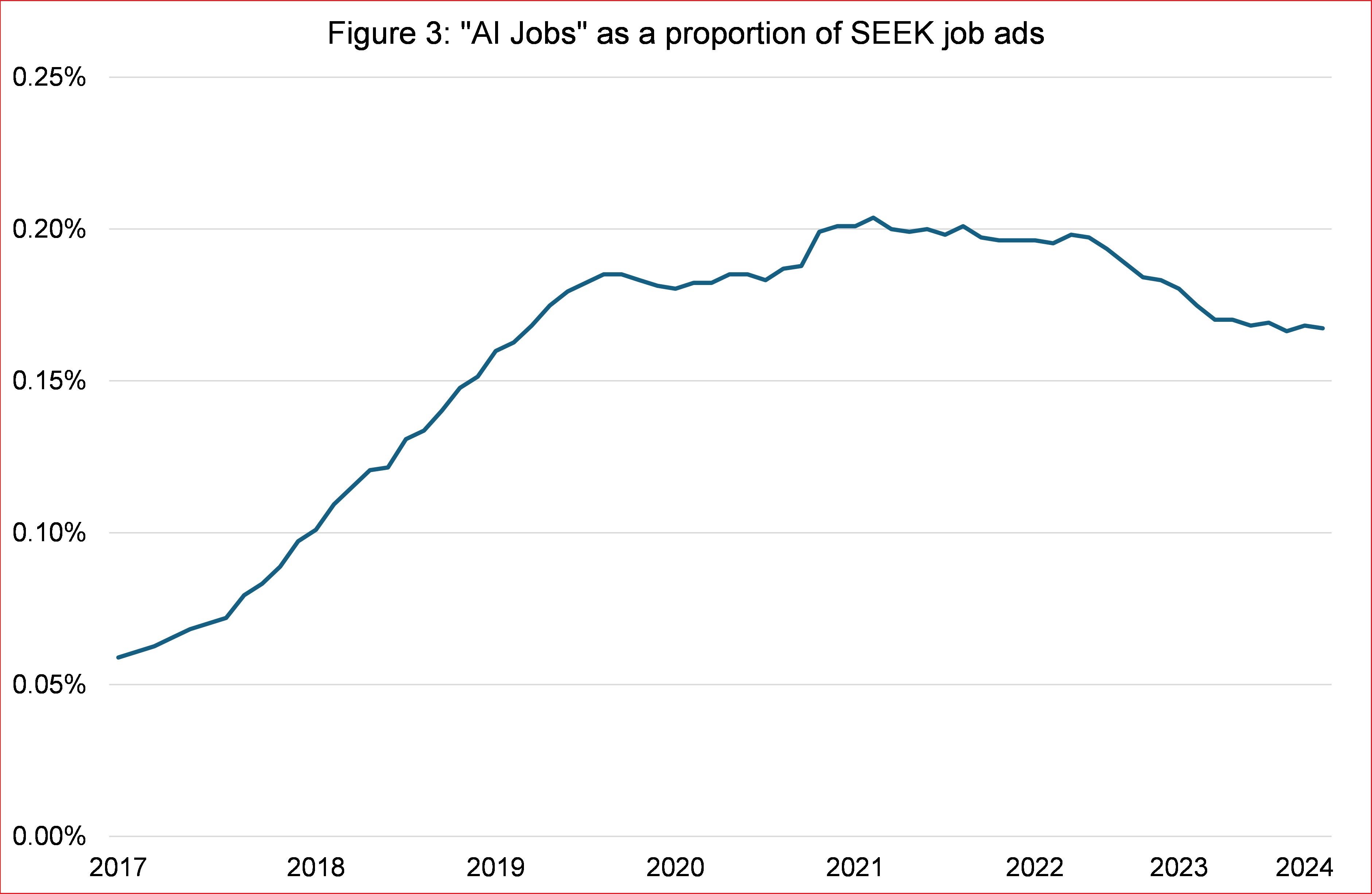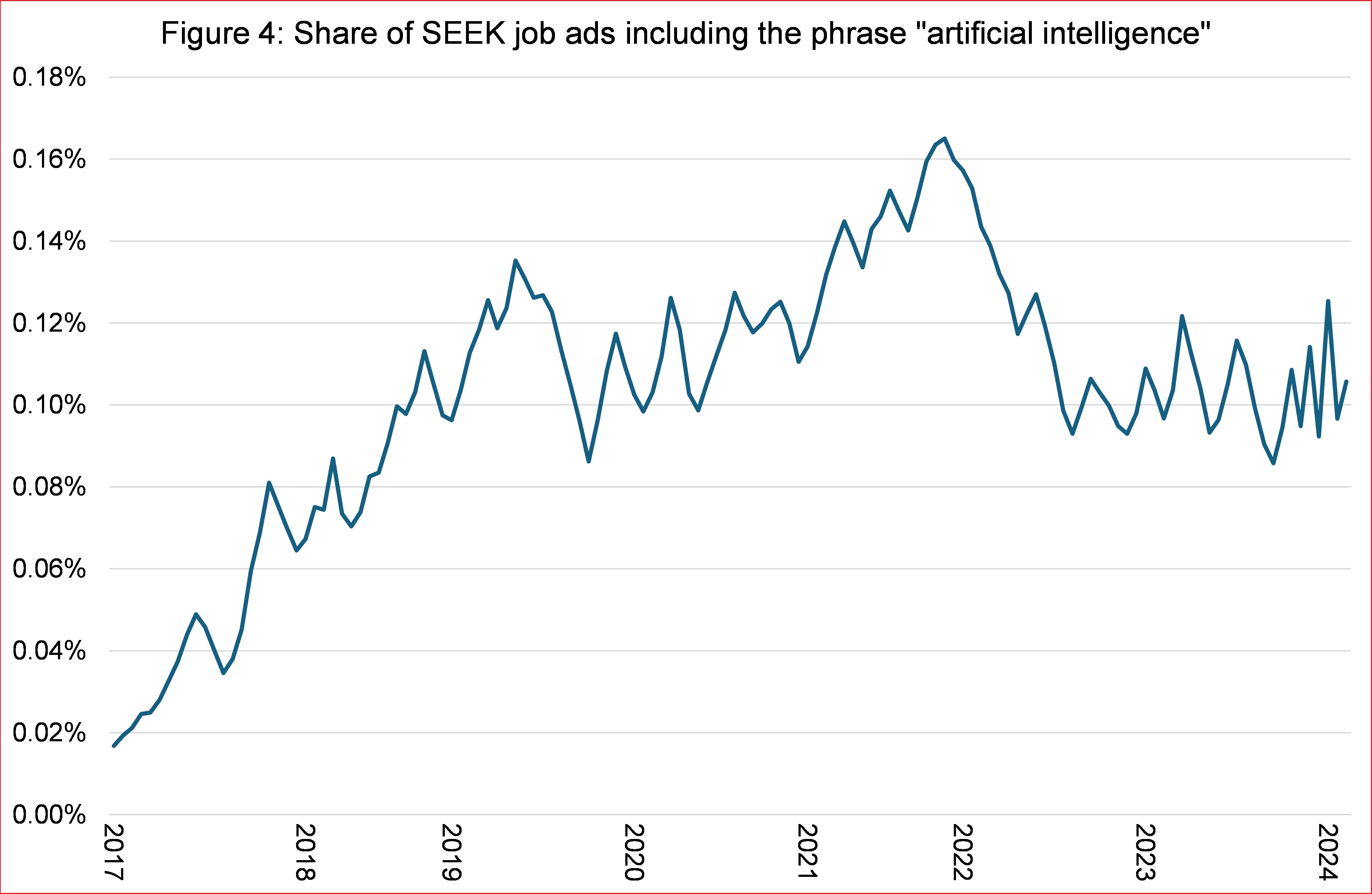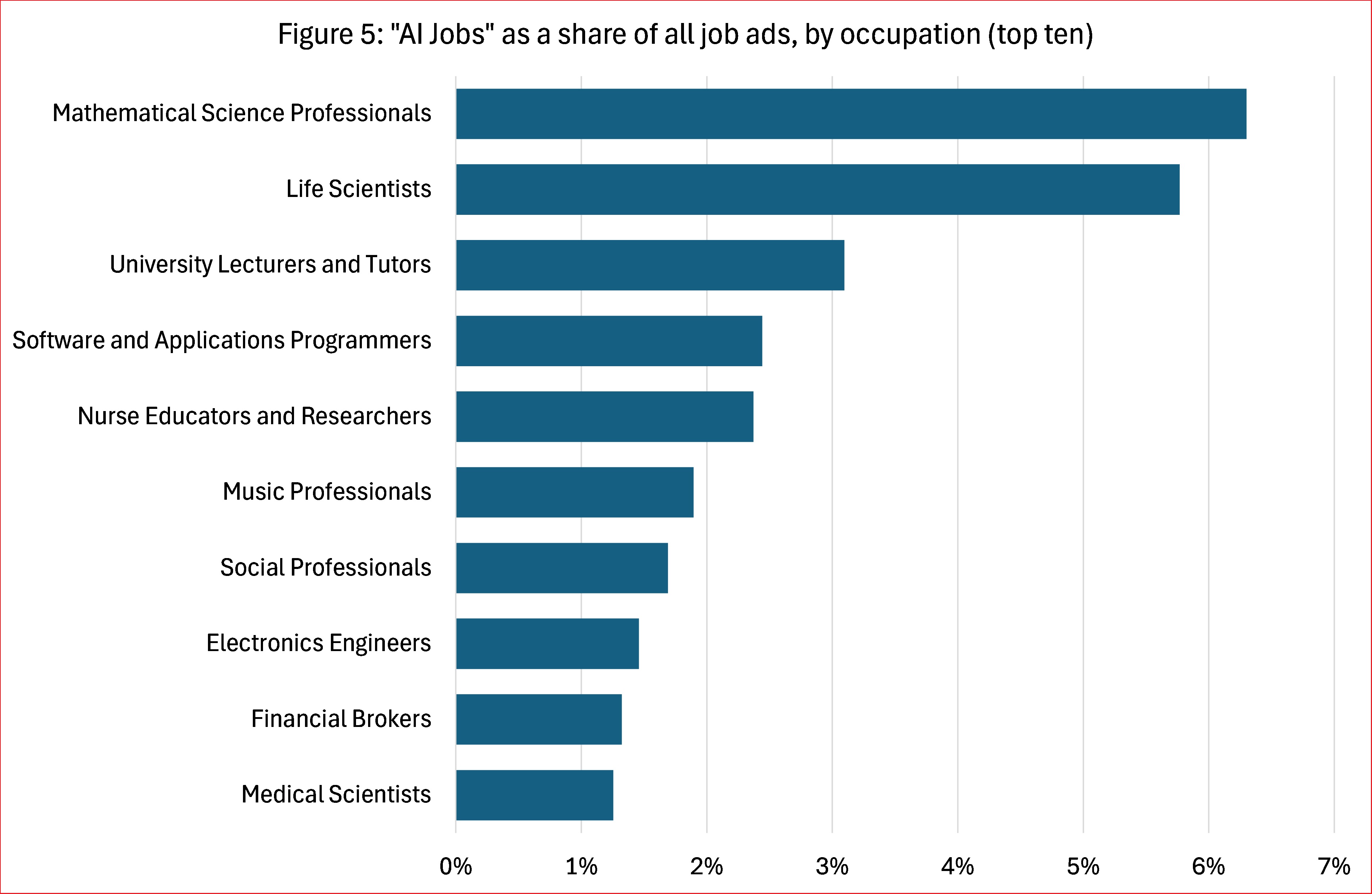An analysis by a federal assistant minister and an economist has found the number of advertisements for jobs involving artificial intelligence skills have dropped in Australia since 2021, and such roles remained “extremely rare”.
Compiled by economist Matt Cowgill and the assistant minister for competition, charities, treasury and employment, Andrew Leigh, the analysis uses Australian data collected by job site SEEK.
It found AI jobs made up “a tiny share of all advertised positions” in Australia, accounting for only 0.17 per cent of job postings, or 1 in every 588 advertised roles.
The pair also found that while workers in roles involving AI skills were generally paid more, there was some evidence that their wage premium had dropped over the past seven years.
The findings were delivered in a speech by Leigh to the Bureau of Statistics and Reserve Bank’s joint conference Human Capital in Sydney on Tuesday.
The report comes after AI experts criticised the level of AI investment in the federal government’s latest budget, which pledged $39.9 million over five years for the development of AI policies and capabilities.

Source: Andrew Leigh and Matt Cowgill's 'Artificial Intelligence at Work: Changing Demand for AI Skills in Job Advertisements'
AI jobs decline
Leigh and Cowgill’s analysis found that while ads for jobs in Australia involving AI skills increased as a share of overall job postings between 2017 and 2022, they have since declined.
However, the report also found demand for AI skills in Australia had still “clearly grown substantially, approximately tripling since 2017”.
Only 0.06 per cent of advertisements in 2017 were for AI jobs — a figure which peaked at 0.2 per cent in 2021, before falling to 0.17 per cent in early 2024.
Similarly, job ads containing the phrase “artificial intelligence” have also dropped, with around 1 in 1,000 advertised roles containing that phrase in 2024.
“The share of job advertisements that mention ‘artificial intelligence’ rose six-fold from 2017 to 2022, but fell by one-third from 2022 to 2024,” the report said.
 Source: Andrew Leigh and Matt Cowgill's 'Artificial Intelligence at Work: Changing Demand for AI Skills in Job Advertisements'
Source: Andrew Leigh and Matt Cowgill's 'Artificial Intelligence at Work: Changing Demand for AI Skills in Job Advertisements'
In a statement to Information Age, Leigh said while many Australians were using AI in their everyday lives, AI specialists were "thin on the ground".
“The drop in AI jobs from 2022 to 2024 likely reflected the general downturn in hiring in the IT sector,” he said.
“Interestingly, AI jobs held up better than general coding jobs over this period.
“The government’s AI strategy is focused on ensuring that we maximise the productivity benefits from AI, both as producers and consumers of the technology.”
Leigh and Cowgill admitted that ads for AI jobs which did not explicitly mention AI-related skills in the text of the job advertisement would not be considered AI jobs by their analysis.
They also were not trying to identify roles made redundant by the emergence of AI.
Half of the 1,000 Australians surveyed for market research company Ipsos’ latest AI Monitor report said they believed AI was “somewhat" or “very” likely to change how they did their current job in the next five years.
Only 26 per cent of Australians said they felt it was “somewhat” or “very” likely that AI would completely replace their job in the next five years.
Australia’s largest telecommunications company, Telstra, announced in May that it would cut 2,800 employees this year amid an AI-driven “reset” of its enterprise arm.
Higher wages for AI jobs
Leigh and Cowgill's analysis found AI jobs have received higher wages than non-AI jobs for years, but things were beginning to balance out.
In the 12 months to March 2024, they found the average advertised salary for an AI job was $121,275 — 31 per cent higher than the average for non-AI jobs.
However, the authors also found AI jobs were "over-represented in occupations that tend to pay well regardless of whether AI skills are mentioned in the job ad”.
After altering their calculations to account for this, they estimated the pay premium for AI jobs was 11 per cent in 2017.
"Over the ensuing years, the pay gap between AI jobs and other jobs in the same state and occupational category steadily fell,” they said.
“In 2023 and 2024, the final years of our sample, the pay premium for AI jobs was just 4 per cent.
“Averaged across the entire period 2017 to 2024 (and controlling for state, time and occupation fixed effects), the pay premium for AI jobs was 6 per cent.”

Source: Andrew Leigh and Matt Cowgill's 'Artificial Intelligence at Work: Changing Demand for AI Skills in Job Advertisements'
In the 12 months to April 2024, AI jobs were found to be most prevalent in science, technology and research roles, with the largest share (6.3 per cent) among mathematical science professionals, which includes data scientists.
The retail, real estate, community services and construction industries were found to have the lowest prevalence of AI jobs.
“Some may be surprised to learn that ‘Nurse educators and researchers’, ‘Music professionals’ and ‘Social professionals’ are among the top ten occupations for their share of AI jobs,” the report added.










